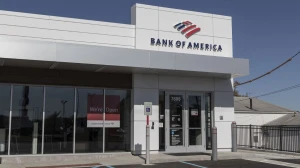
How to Unfreeze Credit if You Lose Your Pin? How to Keep Track of Your Pin?
If you lose your PIN, unfreezing your credit involves contacting each credit bureau individually, providing necessary identification information, and following their specific procedures, either online, by mail, or through customer service.
Published Jul 24, 2023 | Updated Nov 27, 2023 | 📖 9 min read
On This Page
What is Unfreezing Credit?
Unfreezing credit is the act of lifting a credit freeze, which is a security measure that restricts access to an individual's credit report. When someone places a credit freeze, it prevents new creditors from viewing their credit history, making it an effective tool to prevent identity theft and unauthorized access to credit. To unfreeze credit, individuals need to contact the credit bureaus and follow their specific procedures, which may involve providing a PIN or password used to set up the freeze.
Unfreezing credit is a temporary action, often done when individuals plan to apply for new credit, loans, or financial services. Once the credit is unfrozen, creditors can assess the credit report to make lending decisions. It's crucial to understand that unfreezing credit does not impact existing accounts or credit relationships; it solely allows for new credit applications. Individuals can choose to re-freeze their credit after completing the necessary financial transactions for added security.
How to Unfreeze Credit if You Lose Your Pin?
To swiftly freeze or unfreeze your credit reports online, it's advisable to establish an account with each major credit bureau — Equifax, Experian, and TransUnion. This service is offered free of charge. If you've previously implemented a credit freeze, which is designed to restrict access to your credit reports, there might be occasions when you need to lift this freeze. For instance, you may want to open your credit files when applying for a car loan, securing a credit card, or renting an apartment.
To enable a credit check, unfreezing your credit is necessary, and the process is both free and efficient when conducted online. All three major credit bureaus mandate the creation of online accounts for managing credit freezes or unfreezes. Alternatively, you can use mail or contact their customer service departments to unfreeze your credit. Parents or legal guardians can also manage the credit freeze or unfreeze for their children.
Unfreezing your credit must be done individually with each of the three credit bureaus, unless you're aware of the specific bureau used by a creditor for credit checks and choose to lift the freeze only at that particular one.
While permanently unfreezing your credit is an option, NerdWallet advises against relinquishing the protections offered by a freeze. Temporarily unfreezing your credit on a need-to basis is a more convenient approach compared to dealing with the aftermath of identity theft. To guide you through the unfreezing process, follow the instructions provided by Equifax, Experian, and TransUnion.
Experian
To unfreeze your credit with Experian, you have the flexibility to schedule a lift for a specific duration or instantly with a single click when completing the process online. Unfreezing your Experian credit report can be either permanent or temporary. Opting for a permanent unfreeze means your file remains accessible until you decide to initiate another credit freeze. On the other hand, choosing a temporary thaw allows creditors to check your credit for a specified period.
Here are the contact options for unfreezing your credit with Experian:
- Experian Website: Visit the Experian website to manage your credit freeze.
- Mail: Send a request to Experian Security Freeze, P.O. Box 9554, Allen, TX 75013.
- Phone: Contact Experian at 888-397-3742 to unfreeze your credit over the phone.
Equifax
To unfreeze your Equifax credit report, you can do so conveniently through the Equifax website by creating a "myEquifax" account. While a PIN is no longer required for online freezing or lifting an Equifax credit freeze, you can still request one if you prefer. Equifax offers the flexibility to unfreeze your credit either temporarily or permanently, for a specific creditor or a designated period (ranging from one day to one year).
Here are the contact options for unfreezing your credit with Equifax:
- Equifax Website: Manage your credit freeze by visiting the Equifax website.
- Mail: Send your request to Equifax Security Freeze, P.O. Box 105788, Atlanta, GA 30348.
- Phone: Contact Equifax at 888-298-0045 if you prefer to unfreeze your credit over the phone.
TransUnion
To unfreeze your TransUnion credit report, you can choose from various methods. One convenient option is to use the TransUnion website's Service Center. Here, you can unfreeze your credit by creating an account and establishing a Personal Identification Number (PIN). This online process provides a user-friendly and efficient way to manage your credit status.
Alternatively, if you prefer traditional methods, you can submit your request by mail. Send your request to TransUnion at P.O. Box 160, Woodlyn, PA 19094. Make sure to include the necessary details for identification.
For those who prefer a more direct approach, unfreezing your credit can also be done over the phone. Contact TransUnion at 800-916-8800, and during the call, you will be required to provide your PIN for proper identification.
Whether you choose to unfreeze your TransUnion credit for a specific duration or for particular creditors, the status of your credit remains in its current state until you decide to make adjustments.
MarketsHost offers a rich resource of information on Banking, covering Credit Cards, Loans, and other financial topics.
How Is Credit Freeze Done?
A credit freeze is a security measure that renders your credit report inaccessible to lenders, acting as a deterrent against identity theft. This precautionary step prevents criminals from utilizing stolen personal information, such as your Social Security number and birthdate, to open accounts in your name without access to your credit files.
To initiate a credit freeze, you need to contact all three major credit bureaus. Importantly, this process is free of charge, can be lifted whenever needed, and has no impact on your credit score. Lenders typically assess your credit report when you apply for new credit or loans to gauge your capacity to handle additional debt. By freezing your credit, also known as a security freeze, you temporarily remove your credit report from circulation, preventing lenders from accessing your credit score.
While this may result in denial of your credit application due to the lack of a credit score, it simultaneously thwarts potential identity thieves from opening new loans or lines of credit in your name. The ability to freeze and unfreeze your credit report at no cost and as frequently as desired adds an extra layer of security to safeguard your identity and financial accounts.
How to Keep Track of Your Pin?
Forgetting your Personal Identification Number (PIN) can be a common concern, but there are effective strategies to create and remember it. Avoid obvious combinations, consider using the word method, or opt for a familiar date or meaningful address to make your PIN memorable.
Additionally, exploring unconventional methods, like associating it with a contact in your phone or employing an extra-long PIN, can enhance security. However, it's crucial not to compromise security by writing it down, and using different secure PINs for various accounts adds an extra layer of protection. If you face difficulties, contact your bank promptly for assistance.
- Steer clear of easily guessable number sequences like "1111," "1234," or "9876."
- Consider associating your PIN with a word, where each number corresponds to letters on a phone keypad.
- Use memorable dates, such as birthdays or anniversaries, for a PIN that is easy for you to remember.
- Choose a house number from a significant address, making it both memorable and obscure to others.
- If permitted by your bank, opt for a longer, more secure PIN, though ensure it's still memorable.
- Conceal your PIN in the name or number of a contact in your phone, but ensure your phone is secure.
- Resist the temptation to write down your PIN, as it compromises security.
- Maintain different secure PINs for various accounts to minimize risk in case of compromise.
What is the Difference Between Credit Freeze and Credit Lock?
The choice between credit freeze and credit lock depends on the desired level of guarantee and convenience. For detailed information, refer to the credit freeze pages of individual bureaus or consult resources from consumer help organizations like the Identity Theft Resource Center. Difference Between Credit Freeze and Credit Lock:
Credit Freeze
- Controlled and guaranteed by the federal government, providing a high level of security.
- No financial liability in case of unauthorized access to your credit report.
- Free to freeze and unfreeze credit reports with the three credit bureaus.
Credit Lock
- Offered by credit bureaus, providing a locking mechanism similar to a freeze.
- Lacks specific government protections, potentially offering less security.
- More convenient with features like quick app-based locking and unlocking.
- May come with a fee for the added convenience.
What Are the Pros and Cons of Credit Freeze?
Considering the benefits and drawbacks of a credit freeze is essential for safeguarding your financial identity. While it offers free protection against identity theft and prevents data sale, managing freezes may involve additional effort, and a false sense of security could overlook existing account risks. Understanding these aspects helps you make informed decisions about securing your credit.
Pros of Credit Freeze
- Since September 2018, the federal government has made credit freeze and unfreeze services free for all consumers.
- A credit freeze makes it challenging for thieves to open new accounts in your name, as lenders cannot access your credit report.
- Federal law mandates that all three national credit bureaus maintain user-friendly websites for quick and easy credit freeze and unfreeze processes. The law specifies a quick turnaround time for unfreezing, such as one hour for online or phone requests and three business days for mail requests.
- Freezing your credit prevents credit bureaus from selling your data to potential lenders, reducing unwanted pre-approval credit card offers.
Cons of Credit Freeze
- While online accounts offered by credit bureaus simplify the freezing and unfreezing process, managing these freezes still requires some effort, although less than dealing with credit fraud.
- While a freeze protects against new credit lines or loans opened in your name, it doesn't prevent fraudulent activity on existing accounts. Monitoring your accounts closely remains crucial for maximum protection.
- Some insurance companies determine rates based on credit scores, and a credit freeze may lead to higher rates. It's advisable to contact your insurance agent to explain the situation if you experience a rate increase.
- Setting up an online account like mySocialSecurity, which tracks earnings and future benefits, may require a temporary lift of your credit freeze.
How to Unfreeze Credit if You Lose Your Pin - FAQs
1. Can I unfreeze my credit online if I lose my PIN?
Yes, you can usually unfreeze your credit online by providing necessary identification details.
2. What if I prefer other methods than online to unfreeze my credit?
You can unfreeze your credit by mail or by contacting the credit bureau's customer service, following their specific procedures.
3. Is there any cost associated with unfreezing credit after losing the PIN?
Unfreezing credit is generally a free process, but fees may apply for some specific situations, depending on the credit bureau.
4. Can I unfreeze my credit for a specific time period?
Yes, you can choose to unfreeze your credit temporarily for a specified duration, allowing access for specific purposes.
5. Is it possible to permanently unfreeze credit if I lose my PIN?
Yes, you can choose to permanently unfreeze your credit, but it's recommended to carefully consider the implications and potential risks.




